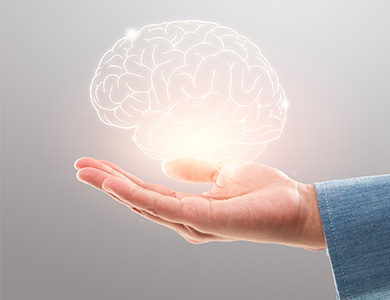
Chronic pain and depression are two conditions that often go hand-in-hand, affecting millions of individuals worldwide. Understanding the intricate relationship between these two debilitating conditions is crucial for developing effective treatment strategies and providing hope for those struggling with their daily lives.
Understanding Chronic Pain and Its Impact on Mental Health
Chronic pain is a persistent and often debilitating condition that can significantly impact an individual's quality of life. It can arise from a variety of underlying causes, including injury, illness, or neurological disorders. The constant battle with pain can take a toll on an individual's mental and emotional well-being, leading to feelings of frustration, hopelessness, and even depression.
The experience of chronic pain can be physically and emotionally draining, leaving individuals feeling overwhelmed and unable to engage in their usual activities. This can lead to a vicious cycle of pain, inactivity, and social isolation, further exacerbating the mental health challenges faced by those living with chronic pain.
The Link Between Chronic Pain and Depression
Chronic pain and depression are often deeply intertwined, creating a challenging cycle for many individuals. Research shows that those who experience persistent pain are more likely to develop depression, and conversely, individuals suffering from depression may be more prone to experiencing chronic pain. This connection stems from the complex interplay between the body’s nervous system and emotional regulation. When someone is in pain for an extended period, it can affect their brain chemistry, leading to imbalances in neurotransmitters like serotonin and dopamine, which are key players in mood regulation. Over time, the physical distress of pain can take a psychological toll, making a person feel helpless or hopeless, common symptoms of depression.
Additionally, chronic pain often disrupts daily life, preventing individuals from participating in activities they once enjoyed, which can contribute to feelings of isolation and sadness. When people are unable to work, exercise, or engage in social interactions, it can exacerbate depressive symptoms. The mental strain caused by persistent pain can also increase stress and anxiety levels, further intensifying both physical discomfort and emotional suffering.
Exploring the Treatments Offered at Thunder Pain and Wellness
Effectively managing chronic pain and depression requires a multifaceted approach that addresses both the physical and mental health aspects of the conditions. This often involves a combination of medical interventions, psychological therapies, and lifestyle modifications.
The first step in the treatment process is a comprehensive evaluation by a healthcare provider, who will assess the individual's symptoms, medical history, and any underlying causes of the chronic pain and depression. This evaluation may include physical examinations, diagnostic tests, and psychological assessments to develop a personalized treatment plan.
At Hunter Pain and Wellness, we understand the unique challenges faced by individuals living with chronic pain and depression. We are dedicated to providing innovative and evidence-based treatments to address these conditions and help our patients achieve a better quality of life.
Transcranial Magnetic Stimulation (TMS)
Transcranial Magnetic Stimulation (TMS) is a non-invasive, FDA-approved treatment option for chronic pain and depression that uses magnetic fields to stimulate nerve cells in the brain. TMS is typically applied to the prefrontal cortex, the area responsible for mood regulation, and has been found to be particularly effective in cases where traditional antidepressants have not worked. For chronic pain, TMS can modulate pain perception by targeting areas of the brain involved in pain processing, providing relief for conditions like fibromyalgia and neuropathic pain.
SPRAVATO® Nasal Esketamine Spray
SPRAVATO® (esketamine) nasal spray is an innovative treatment for treatment-resistant depression that works by targeting the brain's NMDA receptors, which play a role in regulating mood and cognitive function. This medication is a derivative of ketamine and offers rapid relief, often within hours, for individuals who have not responded to other treatments. SPRAVATO® can help alleviate the symptoms of severe depression, including suicidal ideation.
IV Ketamine Infusion Therapy
IV Ketamine infusion therapy is another cutting-edge treatment for chronic pain and depression, particularly effective for those who have not found relief through conventional medications. Ketamine works on glutamate, a key neurotransmitter involved in mood regulation and pain perception, offering rapid symptom relief. IV Ketamine infusions are administered in controlled clinical settings, and research shows that this therapy can provide long-lasting improvements in mood and reductions in pain, making it a valuable option for individuals with conditions like major depressive disorder, PTSD, and chronic pain syndromes.
Schedule Your Consultation with Thunder Pain and Wellness Today
Chronic pain and depression are complex and interconnected conditions that can have a profound impact on an individual's overall well-being. However, with the right treatment approach and the support of experienced healthcare professionals, there is hope for those struggling with these challenges.
At Thunder Pain and Wellness, we are committed to providing our patients with innovative, evidence-based treatments that address the physical and mental health aspects of chronic pain and depression. Through the use of advanced therapies like TMS, SPRAVATO®, and IV ketamine infusion, we aim to help our patients regain control of their lives and achieve a better quality of life.
If you or a loved one are living with chronic pain and depression, schedule a consultation with Thunder Pain and Wellness to explore the personalized treatment options that can provide the relief and support you need. Contact our office in Reno, Nevada, by calling (775) 254-7400 to book an appointment today.




